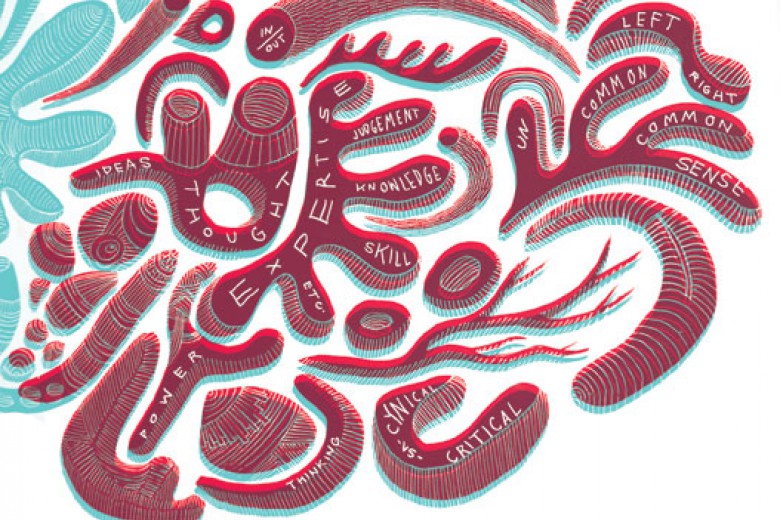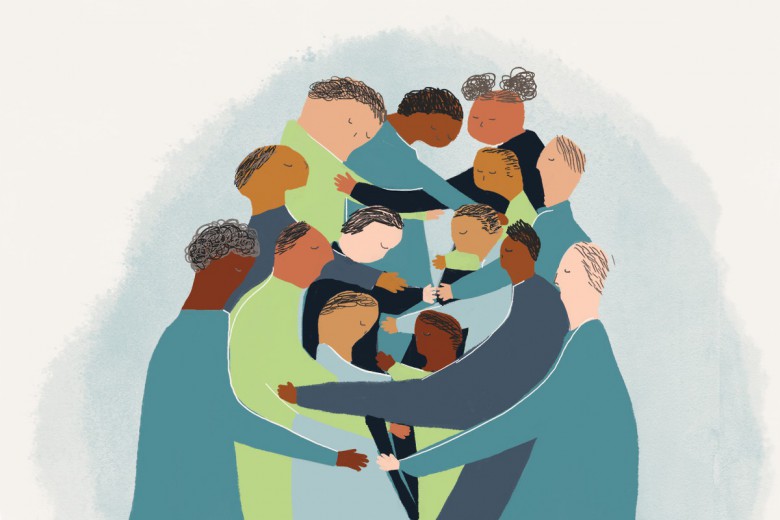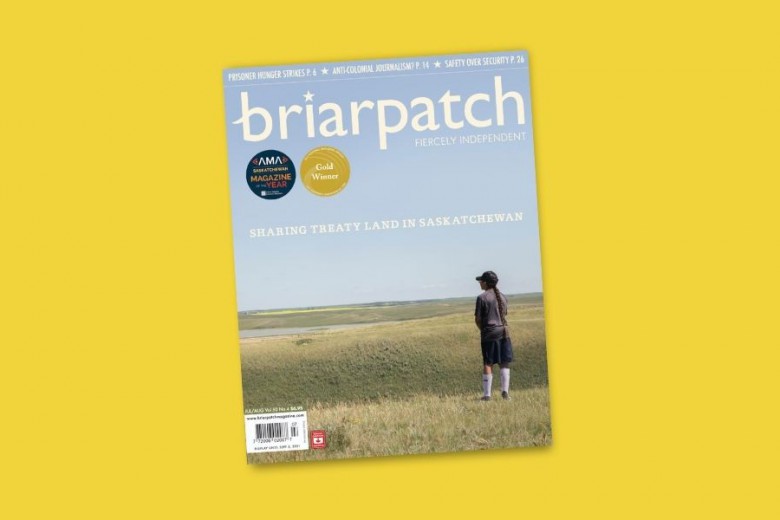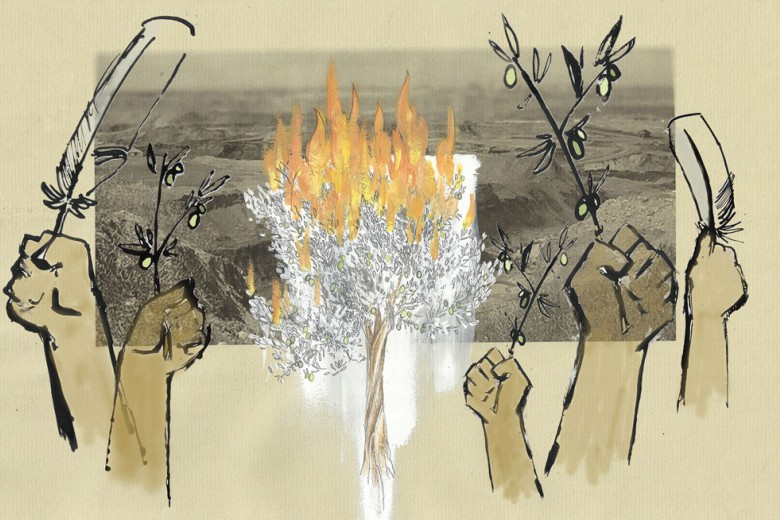“It’s hard to find a country friendlier to Israel than Canada these days” far-right Israeli Foreign Minister Avigdor Lieberman remarked last June.
Indeed, in its recent actions the Canadian government has only reaffirmed and intensified its full-fledged support for the state of Israel, while conducting itself with what seems like a total disregard for public opinion both internationally and at home.
“I’m ashamed of the new policies of this government, which is in the process of moving away from the values that Canada is known for” Medhi Amor, a member of the Montreal-based Canadians for Justice and Peace in the Middle East, told Briarpatch. “There was a tradition of tolerance and human rights. Now on the international stage, we are much more pro-Israel than even the U.S. government.”
In February of this year, Canada’s Junior Foreign Minister Peter Kent was quoted in Shalom Life magazine making an alarming assertion: “an attack on Israel would be considered an attack on Canada.”
A month earlier, Canada announced it would discontinue its financial contributions to the United Nations Relief and Works Agency (UNRWA). UNRWA provides support and resources like clothing, food and health services to approximately 4.7 million registered Palestinian refugees in Jordan, Lebanon, Syria and the occupied Palestinian territories, and relies entirely on donations from various organizations and governments.
“Canada was the seventh largest donor and it contributed an average of $15 million per year” Amor said. “It is very sad to see that Canada is de-funding such an organization, especially when the United States government has funded UNRWA with $40 million.”
The removal of support for UNRWA is far from an isolated incident. Since it took power, Stephen Harper’s minority government has cut funding to many Canadian non-governmental organizations. Many of these groups had worked on issues related to Israel/Palestine in some way, or had spoken out against recent Israeli human rights abuses, but had maintained relationships with the Canadian government for decades.
“It’s impacted us in the sense that it scared our community” Khaled Mouammar, the president of the Canadian Arab Federation, told Briarpatch. “Most of the members of our community are newcomers, and if an organization has been labeled anti-Semitic and is attacked by the government officials, people say, “˜We want to move away from this organization. We don’t want to be associated with it.’”
Canadian Minister of Citizenship, Immigration and Multiculturalism Jason Kenney has repeatedly alleged that the Canadian Arab Federation promotes anti-Semitism and hatred, but has never provided evidence to back up these claims. Still, in 2009, the Canadian Arab Federation’s contracts with the government — which helped finance language programs for Toronto-area immigrants (the majority of whom are of Chinese origin) — were not renewed.
According to Mouammar, who openly criticized the Harper government’s silence during the Israeli offensive in Gaza last year, these funding cuts were the first sign that Canada was embarking on the slippery slope of censorship.
“Internationally, it’s projecting a wrong image for Canada, which is one of bigotry. And domestically, it’s really a major threat to freedom of expression” he said. “They think that by doing this, they can silence any criticism by NGOs of the foreign policy of Canada. They will not stop. They are doing this step by step. This government is using a stealth approach to really change Canadian politics and Canadian values.”
In 2006, shortly after Hamas, a Palestinian movement and party that is considered to be a terrorist group by the United States, the European Union and Canada won the Palestinian legislative elections, Canada was the first country after Israel to cut off funding to the Palestinian Authority. Canada was also the only country among 47 to vote against a UN Human Rights Council resolution condemning the Israeli attacks on Gaza that killed 1,400 people last year.
According to Yves Engler, activist and author of Canada and Israel: Building Apartheid, these government actions combined with recent NGO funding cuts clearly demonstrate Canada’s increasingly pro-Israel policy.
In the current government’s increasingly strident support of Israel, Engler sees a growing concern on the right over the growth and success of pro-Palestinian activism in Canada.
“The Palestinian solidarity movements [in Canada] have made some massive strides. I think part of the rabidness of the Harper government and B’nai Brith and other pro-Israel entities is that they’re increasingly nervous and frustrated with the extent of Palestinian solidarity activism in the country” he said.
Alternatives, a Montreal-based NGO that works with justice and equity projects within Canada and around the world, has been without government funding since March 31, 2009. At that time, it had applied for renewal of its Canadian International Development Agency funding contract, with no response.
“We haven’t heard anything since July [2009]. The only news we received was through the media” said Alternatives’ executive director Michel Lambert. “We’re going to keep working, but it’s had an important impact on our financial balance and the work that we do.”
Lambert said that while the government has not presented Alternatives with an official motive, rumors circulating in Ottawa are that “the main reason [for the cuts] is the position [of the organization] related to Israel.”
Alternatives Journal, a magazine published independently by Alternatives and the Alternatives International organization, has regularly published articles drawing attention to Israeli human rights violations against Palestinians.
Alternatives also has a partnership with the Teacher Creativity Center, a non-governmental organization based in Ramallah, Palestine that works to create an environment for teachers that promotes “human rights, democracy and civic education.”
“We are in front of an operation that is trying to silence civil society. It’s very dangerous. We have to tell this government that it can’t act in this way” Lambert said.
But the more pressure to be silent there is, the harder the movement pushes back, Lambert said. “I think that [the government is] creating a movement against it. People won’t tolerate being muzzled like this.”






